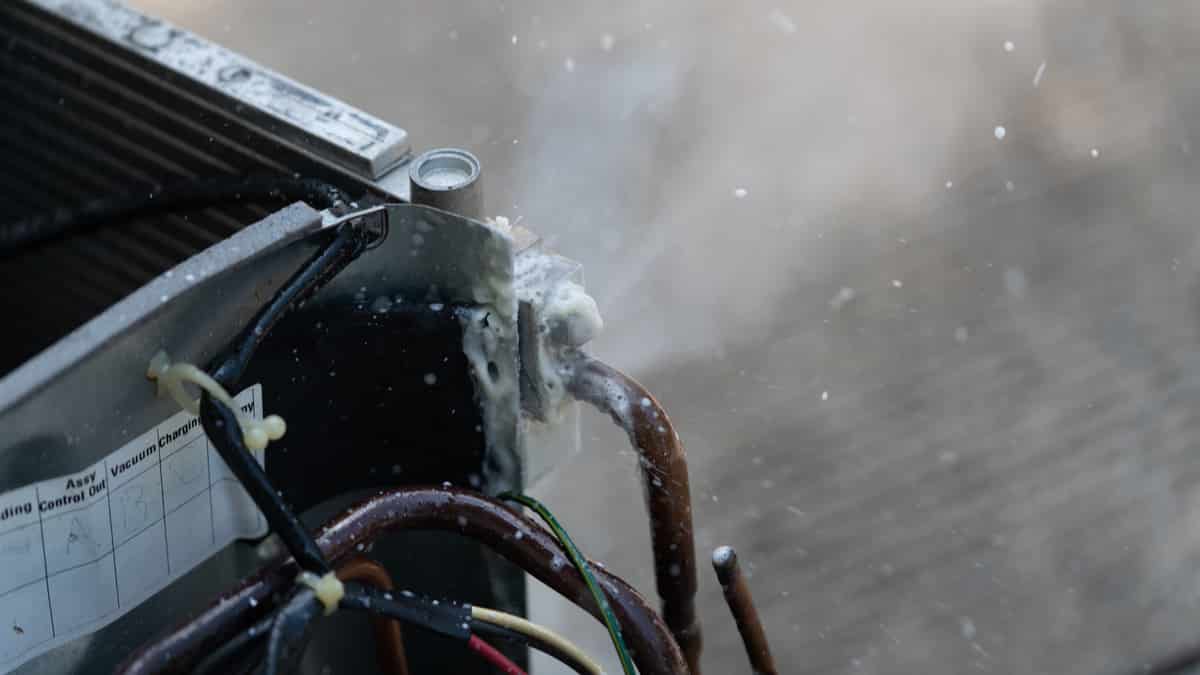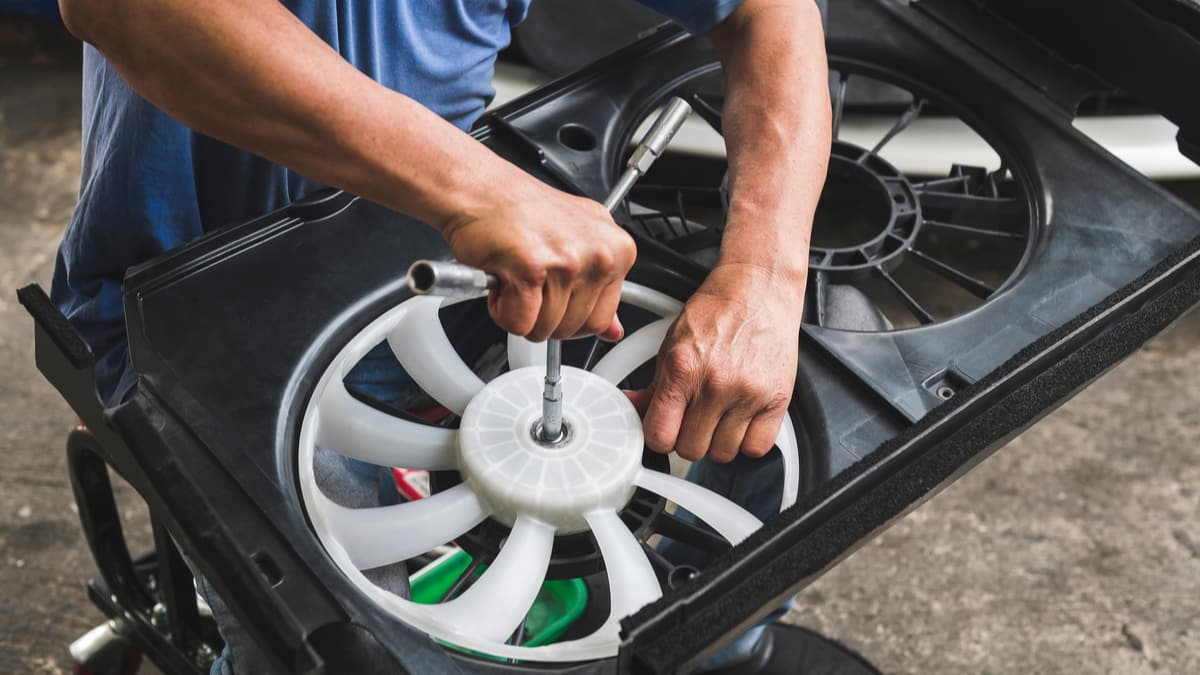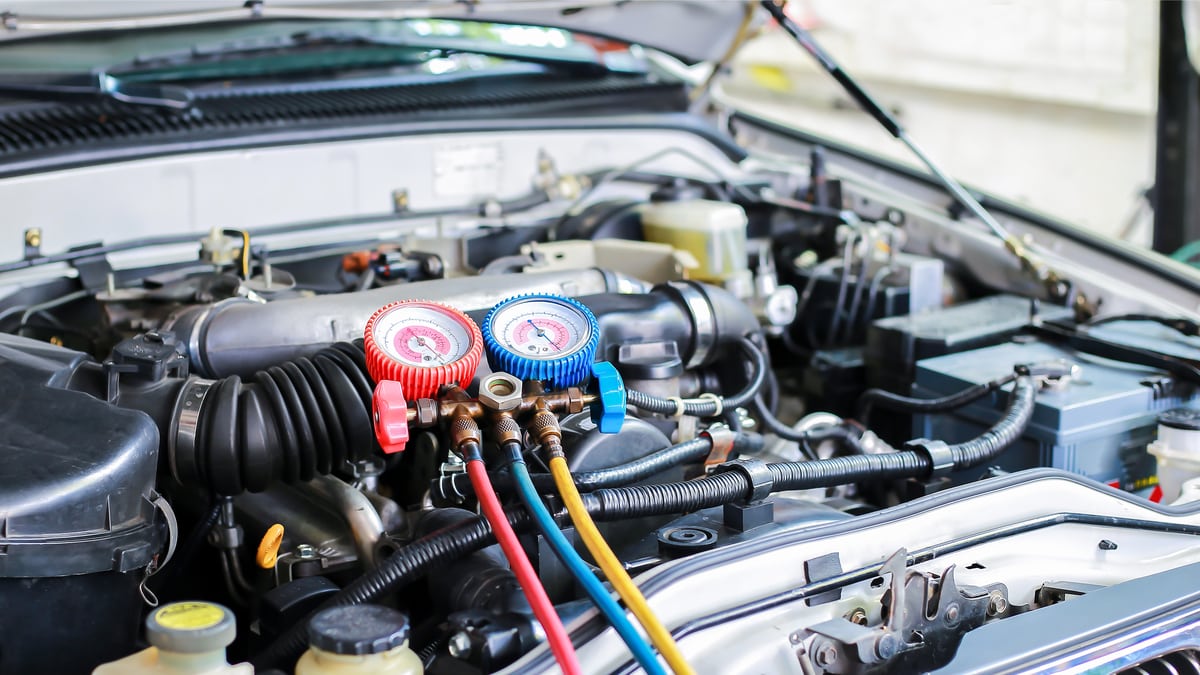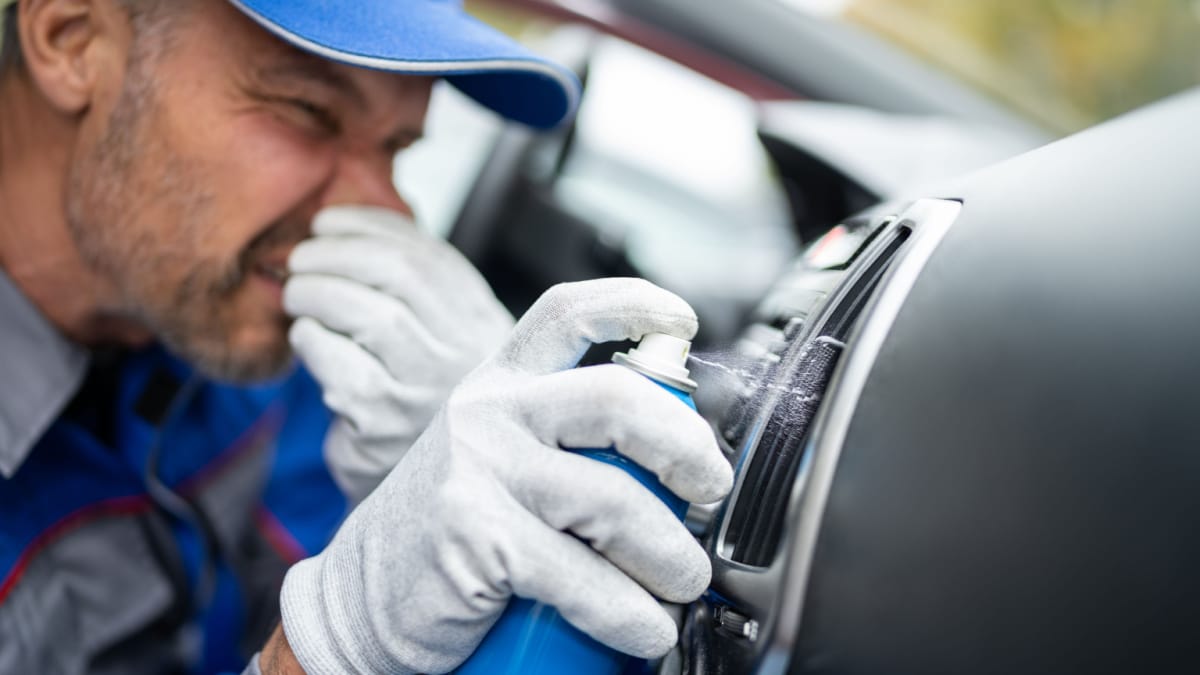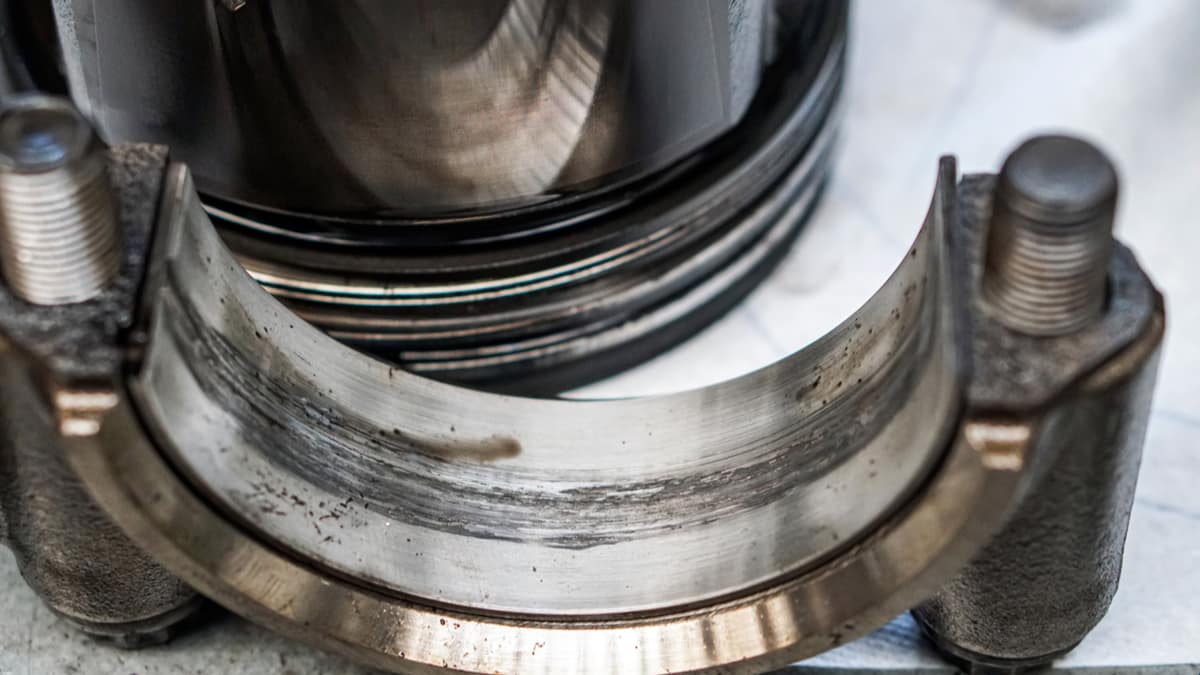When you get into your car for a drive, you don’t want to smell anything unpleasant. So, what do you do when the car AC smells like vinegar? This odor can become overpowering and often points to a problem that should be resolved.
I examine all of these options to see if you can troubleshoot where the smell is coming from. We also show you possible ways to fix the problem, so you can get back to enjoying your car again.
Reasons Car AC Smells Like Vinegar
The most common reason why your car’s AC smells like vinegar is that mold may have grown in the air valves, ductwork, or components. There may also be too much condensation, or an old and clogged cabin air filter.
Here is a more detailed list of why your car AC smells like vinegar:
1. Mold in Vents or Ductwork
The growth of mold is one of the number one reasons for the vinegar smell. Thankfully, mold doesn’t grow quickly, so it’s easy to prevent this situation from happening, especially if you keep up with AC system maintenance.
If you live in a warm, humid climate, mold growth is more prevalent. That’s why it’s important to clean out the air conditioning system as often as possible. Otherwise, you could find yourself dealing with mold. If you do find mold in the system, you must deal with it immediately. This problem can lead to respiratory illnesses, especially among people who are prone to such problems. It can also cause irritation of the sinuses and headaches that you shouldn’t have to deal with.
2. Dirty and old Cabin Air Filter
Musty smells also often come from a contaminated or clogged cabin air filter. This filter is great for trapping particles and debris, keeping the AC system protected. However, when the filter gets clogged, it can also hold onto moisture and start to grow mold.
To prevent this, you must make sure that you are replacing the cabin air filter at the specified times indicated in the owner’s manual. Usually, you should replace this filter every year, but many people overlook this. It’s a simple process that saves you from smelling vinegar and keeps the cabin air at its highest quality.
RELATED: 5 Symptoms of a Bad Cabin Air Filter (& Replacement Cost)
3. Moldy Evaporator Coil or Fins
It’s also possible that the mold has built up in the evaporator coil or fins. Usually, this happens when the vehicle isn’t used regularly and it sits. To keep the moisture down, you want to run your vehicle regularly and turn on the AC system to dry it out.
The vinegar smell is just one indication that there’s mold in the system. It could also cause the AC system to break down completely, especially as the growth becomes worse.
4. Excessive Condensation
The AC system regularly gets moisture and water trapped inside. This condensation alone can lead to a vinegar smell, even if mold hasn’t begun to form. Trapped condensation often occurs because the system hasn’t been run or there’s a clog somewhere.
A good way to tell if there’s a clog is to watch for the regular water flow that should be coming from under your car when the AC is running. If you don’t spot this dripping – it is the system draining water and is completely normal – the moisture might be getting trapped somewhere inside.
5. Dead Organic Material
Nobody really wants to think about animals getting into the system, but it can happen. Animals will venture into vehicles, especially after the car has been sitting for a while or if there are crumbs and food inside.
If a small animal gets trapped in the car system, it can end up dying. It wouldn’t take long after this process for you to smell the decaying corpse, which could resemble vinegar. You will smell it even stronger if the animal dies near the blower.
How to Remove Vinegar Smell from Car
1. Replace Cabin Air Filter
The first step you should take when your car AC smells like vinegar is to look at when the cabin air filter was last changed. How often the filter should be changed in your car depends on the make and model. Usually, it should be replaced every year, but check your owner’s manual for the correct schedule.
Anyway, replacing the cabin air filter is often quite cheap and easy, so if you suspect the filter is bad, replace it.
2. Clean Inlet and Drain
If you find a lot of mold or condensation in the cabin air filter, even if it was changed not too long ago, you need to find the cause of this. Look for trapped leaves in the system inlet and the drain under the front windshield of the car. If the leaves clog the drain pipe under the windshield, the water will flow into the cabin air filter and start to mold, so it’s important to keep it clean.
It can be very difficult to reach the inside of the vents to clean them properly, so it’s much better to spray a special cleaner into the system to kill the bacteria.
3. Use an Air Condition Cleaner
There are special air conditioning cleaners that you can buy and spray into the air conditioning system to kill bacteria and mold. These bottles are quite cheap and something anyone can try for themselves. However, be sure to replace the cabin air filter beforehand, and remove any leaves.
4. Clean Vehicle
Once you have removed all of the smell from the vehicle, it makes complete sense to clean the rest of your car right now. The smell could have permeated other surfaces, so you don’t want to take any chances. It’s important to get into every corner of the vehicle, but first, you have to start by removing any objects that don’t belong.
From here, you can work on the floor mats, seats, upholstery, and hard surfaces. Just make sure you use appropriate cleaners for every surface and only use what’s safe for the material. For example, you need to be especially careful what cleaners are used on leather.
Aside from this, it’s important to vacuum out the interior and wipe down every surface. You could add a quality air freshener to the cabin, which would help cut down on the odor. Additionally, it’s wise to regularly clean the inside of the vehicle to keep the odors to a minimum.
Can I Drive My Car if it Smells Like Vinegar?
A vinegar smell normally has nothing to do with the mechanics of the vehicle. For this reason, there’s nothing stopping you from driving to your next destination. However, if the vinegar smell is coming from broken AC components, you might not be able to run the air conditioning during this time. You could also get ill from breathing in mold, so you want to avoid driving more than necessary.
It’s my recommendation that you start the cleaning and repairing process as soon as possible. Repairing the situation ensures you get the cold air you deserve, and it keeps you breathing the healthiest air possible during your next drive.
How do I clean the AC in my car?
The easiest way to clean an air conditioning system is to make sure there are no leaves blocking the AC intake, replace the cabin air filter, and then spray a special AC cleaning spray into the vents to get rid of mold and bacteria.
How much does it cost to clean a car’s AC?
How much it will cost to clean a car’s AC system depends on how much you want to clean and how much you can do yourself. There are special AC cleaning sprays that you can buy and spray yourself into the vents, and these will cost you under $50. If you want it professionally cleaned, you can expect it to cost between $200 and $400.
Does cleaning AC coils really help?
Yes. A lot of dirt and mold can get stuck in the AC coil, and by cleaning these, you can get a more efficient AC system, and you can also get rid of any bad smells. However, cleaning the AC coil can be difficult without the right tools.
Why does my car AC have a sour smell?
The most common reason for a car’s AC to smell sour is due to mold and condensation in the AC system. The most common and easiest way to solve this problem is to replace the cabin air filter and kill the bacteria with an AC system cleaner.
Categories: Air condition




